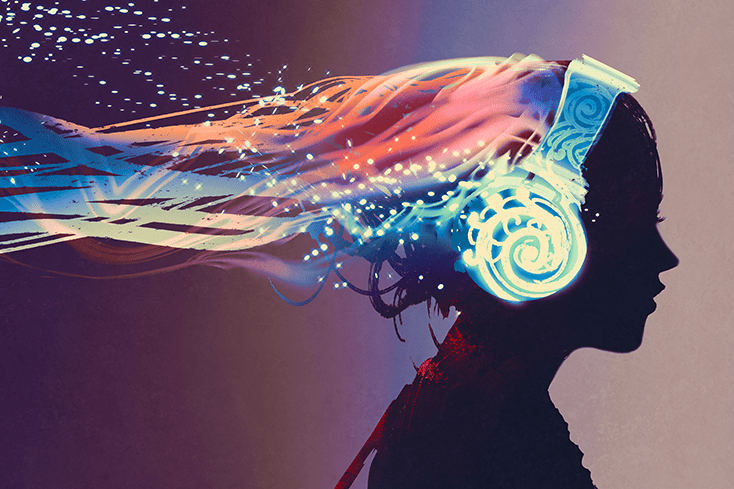December 30, 2022
By Emily Pawlak

In 2022, I listened to 22,885 minutes of music — that’s more than 75% of other Spotify users in the U.S.
Music, I’ve found, can communicate; it can become in tune with our bodies and brains, not just our ears. The layers making up a song — the symphonic blend of lyrics, instruments, beats and rhythms — not only generate basic pleasure, but also help us to understand, express and release our more complex emotions and experiences.
I encourage you to think of your favorite song for a moment. What is it about the song that makes you enjoy it so wholeheartedly? Maybe it’s the lyrics that resonate with you and your life experience in a way that makes you feel understood to your core. Perhaps the beat and flow of the song encourage and inspire you to take on a challenge or to embrace a new day. Whatever the reason may be, that particular song likely connects to you on such a personal level that it manages to elicit raw, unrestrained emotion from within.
In other words, the purpose of music goes far beyond its auditory appeal; it is a critical tool to understanding ourselves and improving our mental health.
The subject of music’s therapeutic process has also captured the attention of researchers. Dr. Shahram Heshmat Ph.D., believes that listening to music gives voice to the emotions we feel unable to express ourselves. “Sad music enables the listener to disengage from the distressing situations and focus instead on the beauty of the music,” he wrote.
So, how is this important to you? The answer lies inside our brains.
Experts say that listening to music stimulates the nucleus accumbens part of the brain, in turn increasing dopamine levels in the body. Research suggests that listening to music is not only pleasing but is effective as a form of therapy and emotion regulation as well.
These benefits are critical for young adults struggling with mental illness, especially in cases where there is limited access to professional mental health care resources, which can be expensive and time consuming.
As a high schooler who has struggled with mental health years before the pandemic even began, I have found that music is the single thing I can rely on to get me through my darkest times.
Every day seems to bring another tragedy plastered across the news channels and mental illness and teen suicide are on the rise. The one thing that continues to not only survive, but thrive, is music — which is why it needs to be recognized and used as a form of therapy. Music continues to prevail as a way for young people to cope with their emotions when all else fails.
It’s time that our society harnesses the power of music and embraces it within the mental health community. The next time you listen to music, reflect upon how it is emotionally affecting your mind and body. Think to yourself — how does this make me feel?
And then listen again. And again. And again.
Emily Pawlak is a senior at Livingston High School in Livingston, NJ. She has always loved to read and write and aspires to have a career in psychology. Emily's passion for mental health awareness inspired her research on this topic.
We’re always accepting submissions to the NAMI Blog! We feature the latest research, stories of recovery, ways to end stigma and strategies for living well with mental illness. Most importantly: We feature your voices.
LEARN MORENAMI HelpLine is available M-F, 10 a.m. – 10 p.m. ET. Call 800-950-6264,
text “NAMI” to 62640, or email. In a crisis, call or text 988 (24/7).